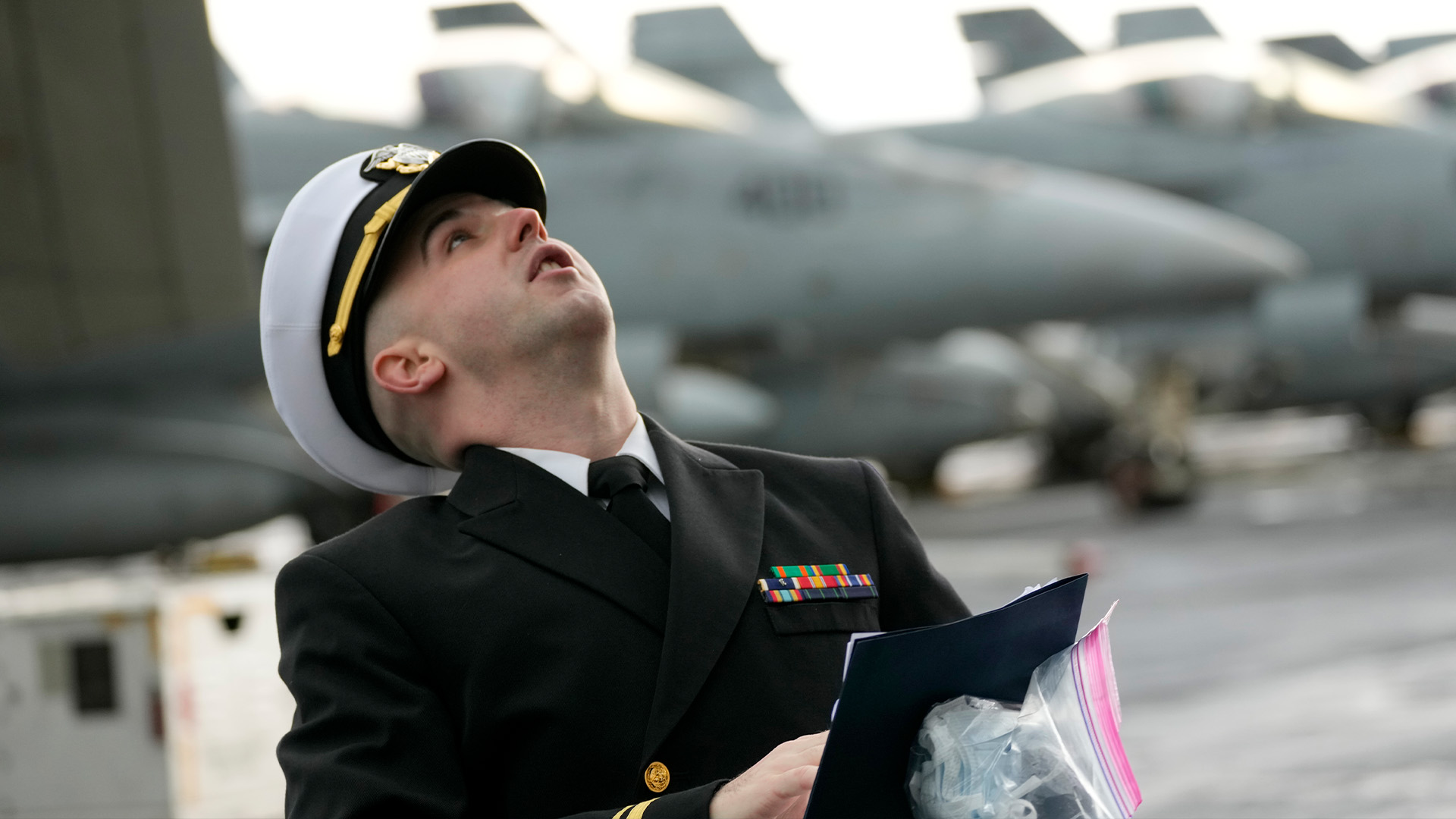Red Sea in Flames: U.S. Strikes Back as Houthi Rebels Escalate Attacks on Global Shipping
Iran’s Shadow Looms as Houthi Aggression Pushes Region to the Brink

ERBIL (Kurdistan24) - Yemen's Iran-backed Houthi rebels claimed on Monday to have launched two attacks within 24 hours on an American aircraft carrier group in the Red Sea. The attacks, described as retaliation for deadly U.S. airstrikes, prompted another round of U.S. military action against the rebel group.
The Houthis initially stated they fired 18 missiles and a drone at the USS Harry S. Truman and its accompanying warships, later claiming a second assault. While there was no immediate response from Washington regarding these claims, a U.S. official, speaking on the condition of anonymity, later confirmed that the Houthis fired multiple drones and at least one missile. U.S. fighter jets intercepted most of the drones, while the missile fell into the sea without striking its intended target.
The U.S. launched airstrikes on Saturday, targeting Houthi positions in response to persistent attacks on Red Sea shipping lanes. The Houthi-run Health Ministry reported that these strikes killed at least 53 people and wounded nearly 100 others across several locations, including the capital, Sanaa, and the rebel stronghold of Saada. In response, Houthi leader Abdulmalik al-Houthi called for mass demonstrations and warned that further escalation would follow if U.S. aggression continued.
President Donald Trump, reaffirming Washington’s commitment to securing maritime trade routes, warned that the U.S. would employ “overwhelming lethal force” until the Houthis ceased their attacks. He also placed responsibility on Iran, stating that Tehran would be held “fully accountable” for the Houthis’ actions. U.S. Secretary of State Marco Rubio echoed this stance, asserting that the strikes would persist until the rebels lost their capacity to disrupt commercial and military navigation.
Iran’s influence over the Houthi rebels has long been a source of regional instability, with Tehran accused of arming and training the group to serve its broader geopolitical ambitions. By enabling the Houthis' aggressive tactics in the Red Sea, Iran is not only challenging U.S. military dominance but also threatening vital global trade routes, heightening tensions with Western powers and Gulf allies. While Tehran denies direct involvement, the sophistication of the Houthis' missile and drone capabilities strongly suggests external support. As the conflict intensifies, fears grow that this proxy war could spiral into a broader confrontation, dragging the region closer to a full-scale crisis.
Since the outbreak of the Israel-Hamas war in October 2023, the Houthis have intensified attacks on Israeli-linked shipping in the Red Sea, claiming to act in solidarity with Palestinians in Gaza. While these strikes paused following a January ceasefire between Israel and Hamas, the rebels recently resumed their assault, citing Israel’s blockade on humanitarian aid to Gaza as justification.
The latest escalation underscores the growing maritime threats posed by the Houthis, whose attacks have disrupted one of the world’s busiest shipping corridors. The U.S. Navy has reported at least 174 direct attacks on its vessels and 145 assaults on commercial ships by the group over the past 18 months, making the conflict one of the most significant naval confrontations since World War II.
Despite repeated accusations of Iranian military backing for the Houthis, Iran’s leadership denies direct involvement in the group’s operational decisions. Iran’s Revolutionary Guard commander, Gen. Hossein Salami, dismissed claims of Tehran’s role in the Houthi attacks, while Foreign Minister Abbas Araghchi urged Washington to cease its airstrikes, insisting that the U.S. could not dictate Iran’s foreign policy.
The situation remains volatile as the U.S. Central Command (CENTCOM) confirmed ongoing operations against what it described as “Iran-backed Houthi terrorists,” who have repeatedly targeted international shipping and military vessels, destabilizing a critical global trade route. Despite widespread condemnation of their attacks, the Houthis continue to escalate tensions, dragging Yemen deeper into chaos. Meanwhile, the United Nations has urged both sides to exercise restraint, warning that the rebels’ actions and the subsequent military responses are worsening the dire humanitarian crisis in Yemen, already the poorest nation in the Arabian Peninsula.